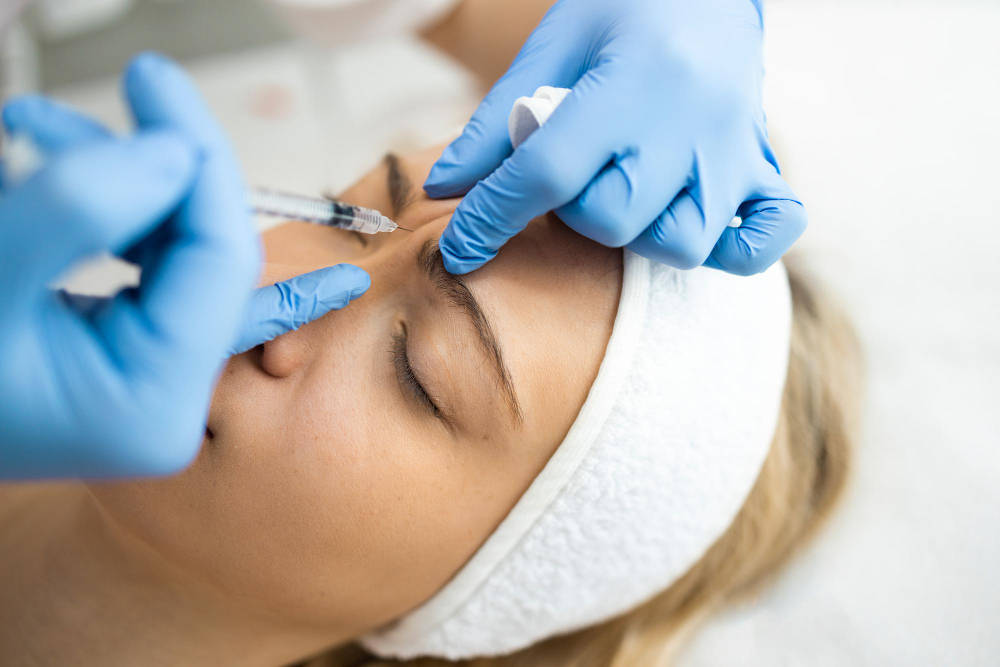
Shoulder pain can interfere with your daily life, making simple tasks like lifting, dressing, or reaching painful and frustrating. When this pain doesn’t improve with rest, medication, or physiotherapy, your doctor might recommend an MRI to find the root cause. Let’s introduce our keyword. If you’re searching online for an MRI shoulder near me you’re likely looking for a diagnostic centre that offers high-quality imaging, quick reports, and affordable prices. This advanced Scan can help detect soft tissue injuries and joint issues that might not appear on an X-ray or CT scan.
Understanding the MRI Shoulder Scan
An MRI (Magnetic Resonance Imaging) shoulder scan is a non-invasive diagnostic test that uses a strong magnetic field and radio waves to produce detailed images of the bones, ligaments, muscles, and tendons in your shoulder joint. It is beneficial for diagnosing soft tissue problems that other imaging methods might miss.
Common conditions detected through a shoulder MRI include:
- Rotator cuff tears or degeneration
- Shoulder impingement
- Bursitis or tendonitis
- Ligament or labral injuries
- Cartilage damage
- Joint dislocation or arthritis
- Bone fractures not visible on X-rays
By showing detailed images of your shoulder’s internal structure, an MRI allows doctors to accurately determine the cause of pain and plan the proper treatment.
When to Consider an MRI Shoulder or MRI Both Shoulder Scan
Doctors may recommend an MRI and both shoulder scan if you experience pain, weakness, or limited movement in both shoulders simultaneously. This type of Scan allows radiologists to compare both joints for symmetry and detect bilateral conditions like inflammation, arthritis, or overuse injuries.
An MRI of both shouldersis handy for:
- Athletes involved in repetitive shoulder movement (like swimmers or tennis players)
- People with chronic joint disorders or systemic inflammatory conditions
- Patients recovering from bilateral shoulder surgeries
- Individuals with unexplained pain or stiffness in both shoulders
This comprehensive Scan ensures that no structural issue goes unnoticed, providing a complete view of your upper body alignment and muscle balance.
Symptoms That Require a Shoulder MRI
If you experience any of the following, consult your doctor about scheduling a shoulder MRI:
- Persistent or worsening shoulder pain lasting more than a few weeks
- Swelling or inflammation around the joint
- Stiffness or restricted movement
- Weakness or numbness in the arm
- Pain after trauma, injury, or a fall
- Clicking or popping sounds while moving your shoulder
A timely MRI can help diagnose these symptoms before they worsen, preventing long-term complications.
The Procedure: What Happens During an MRI Shoulder Scan
Here’s what you can expect during your MRI appointment:
- Preparation: You’ll be asked to remove all metallic items, jewellery, watches, or electronic devices before entering the MRI room.
- Positioning: You’ll lie on a movable scanning table. Your shoulder is positioned inside a special coil designed to capture high-quality images.
- Scanning: The MRI machine makes rhythmic tapping or humming sounds during the Scan, which typically lasts 30–45 minutes. You’ll need to stay still to ensure clear images.
- Contrast Injection (if required): In some cases, a contrast dye (gadolinium) is injected to enhance image clarity, particularly when evaluating soft tissues or detecting inflammation.
- Completion: After the Scan, you can resume your normal activities unless sedatives were used.
Benefits of an MRI Shoulder or MRI Both Shoulder Scan
MRI scans offer several key benefits over other imaging techniques:
- Detailed Soft Tissue Imaging: Reveals even minor tears or inflammation.
- No Radiation Exposure: Unlike X-rays or CT scans, MRI uses magnetic fields, making it safer.
- Early Diagnosis: Detects conditions at an early stage, improving treatment outcomes.
- Non-Invasive: The procedure doesn’t require surgery or recovery time.
- Comprehensive View: The MRI of both shoulder scans can evaluate alignment and detect issues affecting both joints simultaneously.
By providing accurate diagnostic images, MRI scans help doctors recommend appropriate therapy or surgical solutions.
Preparation Tips Before Your MRI
Getting ready for your MRI is simple, but a few precautions ensure accurate results:
- Avoid wearing clothing with zippers, hooks, or metal parts.
- Inform your radiologist if you have pacemakers, implants, or metal fragments in your body.
- Refrain from using lotions, perfumes, or deodorants before the test.
- If you are claustrophobic, ask about open MRI options available at most Diagnostic Centres
- Pregnant women should always consult their physician before the Scan.
MRI Shoulder Cost and Factors Affecting It
The cost of an MRI shoulder scan or an MRI both shoulder scan depends on several key factors:
- Machine Strength: 1.5T and 3T MRI machines differ in image quality and cost.
- With or Without Contrast: MRI with contrast costs more due to the additional dye used.
- City and Location: Prices vary depending on where you live.
In India, the average MRI shoulder scan costs between ₹7,000 and ₹9,000 for a single shoulder, while an MRI both shoulder scan may range between ₹14,000 and ₹17,000, depending on the diagnostic centre and equipment used.
Always confirm the total price, scan type, and reporting time before booking.
Finding the Best MRI Shoulder Near Me
When you search online for MRI shoulder near me, keep these tips in mind:
- Check Centre Reputation: Read online reviews or patient feedback for quality and accuracy.
- Look for Accreditation: Choose NABL or NABH-accredited diagnostic centres.
- Compare Prices: Many centres publish transparent pricing online.
- Machine Type: Prefer centres with 1.5T or 3T MRI scanners for higher-quality images.
- Convenience: Choose centres that offer online appointment booking and same-day reporting.
Selecting a reputable Diagnostic Centre or Hospital ensures accurate imaging and timely reports for your shoulder evaluation.
After the MRI: What Happens Next
Once your MRI is complete, a radiologist will interpret the images and send a detailed report to your doctor. Based on the findings, you may need physiotherapy, medication, or in some cases, minor surgical intervention.
If a contrast agent was used, drink plenty of water afterwards to help eliminate it from your body. Most diagnostic centres deliver your MRI report within 24–48 hours.
Final Thoughts
Shoulder problems, whether caused by injuries or wear and tear, can limit mobility and reduce your quality of life. Getting an MRI is the most precise way to diagnose these issues and plan effective treatment. For a comprehensive evaluation, especially when both shoulders are affected, you can opt for an MRI of both shoulders to ensure a complete and accurate diagnosis.
If you’re dealing with ongoing pain or stiffness, don’t delay — search for an MRI shoulder near me and schedule your Scan at a trusted Diagnostic Centre.
Conclusion
Whether it’s persistent pain in one shoulder or discomfort in both, an MRI of both shoulders provides a detailed and reliable diagnosis. Choosing a qualified Diagnostic Centre or Hospital near you ensures accurate results, timely reports, and peace of mind. For anyone searching for the best and most affordable imaging solution, finding an MRI shoulder near me is the first step toward recovery and long-term joint health.
Also Read:- Sleep study test at home. LG Respicare offers home-based sleep study services in Delhi/NCR, allowing patients to undergo sleep-disorder diagnostics in the comfort of their own bedroom. Their service includes delivery of monitoring equipment for overnight use, professional support and home setup convenience. The aim is to diagnose conditions like Obstructive Sleep Apnea (OSA) without needing to spend a night in a clinic. It’s beneficial for individuals with suspected sleep issues, snoring, or daytime fatigue, providing a more comfortable, private and potentially quicker diagnostic pathway.







